Ministers have tried to ‘bury critical report,’ claim GMB Union
The Government must act of the recommendations on its own review by backing the UK’s struggling shipbuilding industry, GMB the union for shipbuilding workers has said.
The Ministry of Defence has published the undated review by Sir John Parker, the former Chief Executive of shipbuilding firms Harland & Wolff and Babcock, on the night before Parliament is dissolved.
Parker had been commissioned to write a review of the Government’s National Shipbuilding Strategy.
The report is critical of the Government’s procurement policy. It concludes that the Government’s policy of putting all shipbuilding orders apart from frigates, destroyers and carriers out to international tender is not ‘the right strategic approach.’
The document goes on to say that ‘UK-only competition should be considered for future defence-funded vessels.’
The Appledore shipyard closed earlier this year due to a lack of work, and shipbuilding jobs have been placed under threat at other yards across the UK. The state-owned Spanish company Navantia was thought to be the front-runner in the £1.5 billion competition to build up to three Fleet Solid Support ships for the Royal Fleet Auxiliary.
Ross Murdoch, GMB National Officer, said:
“This report by the Government’s own adviser leaves no room for doubt – it was a catastrophic mistake to put a string of shipbuilding orders out to the global market. Our yards cannot compete against the unfair subsidies awarded by other nations while our competitors would not dream of letting the UK bid for their contracts. The Government must now back skilled UK workers and our steel industry by keeping the £1.5 billion Fleet Solid Support contract in the UK and reserving future awards for our own yards. Instead of trying to bury this critical report Ministers must listen to Sir John Parker and back our industry, instead of selling our future overseas.”
However, as of this week the £1.5bn competition to build up to three Fleet Solid Support Ships for the Royal Navy has been suspended. It is understood that Defence Secretary Ben Wallace halted the competitive tendering process because bidders were “not compliant” with cost.
Competing for the work was a British consortium consisting of companies Babcock, BAE Systems, Cammell Laird and Rolls-Royce (forming Team UK) and international bidders Fincantieri (Italy), Navantia (Spain), Japan Marine United Corporation, and Daewoo Shipbuilding and Marine Engineering (South Korea).
Fincantieri and Daewoo Shipbuilding and Marine Engineering had already withdrawn, according to the Financial Times. This left only Team UK, Navantia and Japan Marine United Corporation.
The Ministry of Defence said in a statement:
“It is clear that the current approach will not deliver the requirement. We are now considering the most appropriate way forward for the procurement project.”
It has also been reported that many regard the suspension as a first step to reclassifying the vessels to be exempt from EU laws aimed at preventing protectionism, allowing them to be built in the UK rather than overseas.
That the vessels were put out to international tendering attracted a lot of criticism from a wide range of sources, including the UK Defence Journal.
During a debate last year on UK sovereign capability, All-Party Parliamentary Group for Shipbuilding & Ship Repair Vice-Chair Paul Sweeney pointed out that despite claims to the contrary from some corners, the UK was well within its rights to protect the Fleet Solid Support Ships tendering process from international competition, something the National Shipbuilding Strategy did not address when published:
“In the context of major shipyard closures and significant downsizing, whether that is at Rosyth or Appledore, it is bizarre that the Government are quite happy to tender contracts overseas in international open competition. Under article 346 of the treaty on the functioning of the European Union, the Government could quite easily designate the industry as UK protected. It is entirely at their discretion. Any notion that their hands are tied is bogus. They could do that, smooth the production cycles and build a firm and stable footprint for UK shipyards, which would enable them to get match fit and then go out into the world and compete effectively for other orders. That is exactly what they do in Italy with Fincantieri, and what they do in France with DCNS. It is exactly what happens in Germany.
I do not understand why other European Union member states can achieve the same objectives much more effectively than us, but we are so holier than thou that it hurts when it comes to the zealous application of these EU rules and we seem to undermine our own industrial base and our prosperity as a result, meaning that communities are broken and skills are lost. Ultimately, we undermine our objective of building a more resilient and effective industrial base to serve our defence industry and, potentially, commercial spin-offs.”
With a general election set for the 12th of December, it is unlikely that the competition will be revived this year, as reported here.


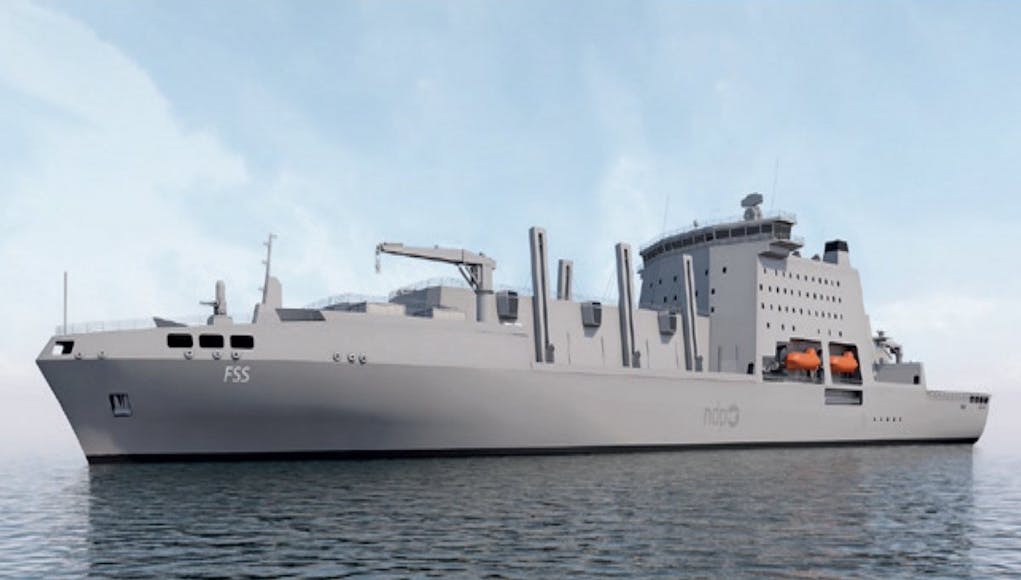
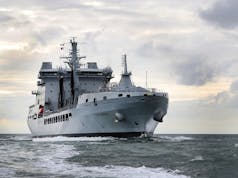
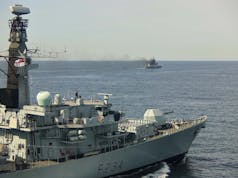
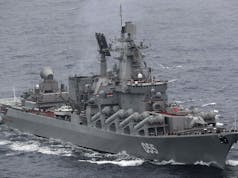
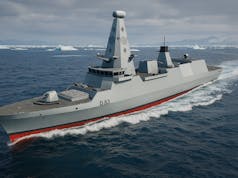

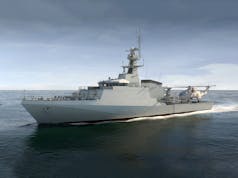

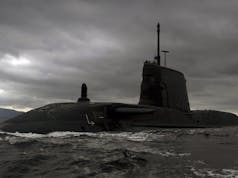
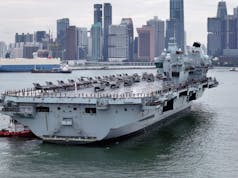
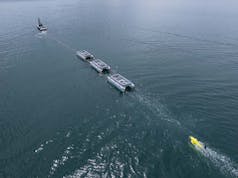

Only this country would even spend time deciding where in the World to build these vessels. Most countries would build a yard if there wasn’t the capacity, than award the project to another nation. This global attitude does little to help domestic shipbuilding and all the associated jobs it would create.
totally agree. tale of woe. i started work in a Sunderland shipyard in the early 60s. its now a call centre. A recent port authority tug was built in France. The new Wear bridge was built in Holland using Italian steel and assembled by a German company. I think its too late to save whats left of our heavy industries, thats assuming that we want to.
It’s never to late. The worm is starting to turn, just in time.
Why are British yards unable to cope with international competition? Are they so weak they need to be constantly subsidised? I am not taking the …l it is a serious question.
If the new ships are put out to global tender could we not still win the contract.
I actually like what the Australian Government did – build a nationally owned yard, and lease it to whoever wins the tender to do the work in Australia.
This is all about faith. German and Japanese management culture in the auto industry has shown that conflict in industrial relations is not inevitable. British designers, engineers and workers can be trusted to deliver a good product. It’s time for those in government to catch up in their attitudes. The UK will leave the EU and all of the ‘deals’ make us poorer for quite some time; all that varies is by how much. We need to pull together.
The reason why the government is so overzealous with these EU rules is because it works to their advantage: they can contract the shipbuilding to the lowest possible bidder in an effort to save money, having no long term thinking about the domestic shipbuilding industry.
Well, they’ll claim that building our frigates over such a long period of time will preserve it but all it really does is waste money in the long run and screws over our armed forces by minimising the assets they receive. Its not about preserving skills so much as only looking as far forward as this year’s budget.
We need 3 or the idea of a UK CBG becomes questionable and ties carrier operations even closer to USN and so US foreign policy. The USN in a way is our navy and it is good that the navies of the White Commonwealth and US work so closely. But a national asset is still a national asset. Hull numbers matter. Doesn’t matter whether it is how many cans of beans or missiles you need to move, or how good your latest weapon system is the ship can only be in one place.
The Shipbuilding Strategy was formulated in 2016 and promulgated in 2017 after an interdepartmental assessment. During the past two years it has, to significant extent, been implemented. Regrettably, still not without casualties (one would hope all is not lost on that front), but with some considerable progress on projects non the less – and, to our wide eyed amazement, international success as well.
The Review of progress is now published within two years of the initial promulgation of the Strategy. Not what I would class as ‘burying reports’ within the overall and far reaching context of the organisational changes required. Indeed, Sir John Parker’s review is generally upbeat on a number of fronts.
His unveiled criticism is justifiably over the classification of RFA vessels; since the generally accepted EU term refers to ‘defence funded’ equipment. In fact, the hardly veiled overall criticism appears of the Treasury in what could be a struggle involving how predictable financing is delivered over requisite periods.
On occasions, the Government could be granted a little slack.
So subsidised other nations could not meet the budget requirement……
Can see the headline next, great news contract awarded to UK shipyard for 2 ships for £1.5bn!
Or one ship.
If they do build these 3 solid support ships in the U.K. I will be the first one to thank them.
We should build all R.N. and R.F.A. ships in the U.K. to support our own industries and keep our own people in well paid work like other major European countries do.
We can sustain 4 shipyards in the U.K. by doing this, Clyde – frigates and destroyers, Rosyth – Type 31, Cammell Lairds on the Mersey – R.F.A. and other large ships, Barrow – submarines. Things like O.P.V.s, M.C.M.V.s, etc. would be shared between the yards. There would be some cross over too if a yard was without work.
These 4 yards should be invested in so we have modern, state of the art facilities to build ships for the Royal Navy and R.F.A., this will also make British shipyards more efficient, competitive and productive.
Prepare to get absolutely 0 ships then 🙁
There should be MPs queueing up to get sanity back into UK defence buying, but it’s left to the GMB & keyboard “warriors”.
I do find the focus this gets quite amusing, the UK has placed just a handful of ship orders overseas and has placed billions in orders for UK built subs and ships. In the next 3 to 4 years fast jet production will cease in the UK with the Hawk and Typhoon orders drying up yet almost no one seems to care.
The defence industrial strategy of UK has been an absolute mess for many years. This government seems to be starting to get to grips with it making sensible decisions regarding Boxer and T31.
But someone needs to wake up and look to do more. We are spending vast amounts of money overseas where in this country we have some of the brightest minds and most skilled engineers that work directly with the customer to ensure the product achieves what the mod wants. Furthermore by doing this we’re effectively propping up other countries economically including things such as their social and healthcare instead of our own.
In the acquisition process – corporate tax, income tax, national insurance, potential VAT, plus balancing negative of British companies not getting the work: loss of skills resulting in higher costs of future projects, more people on benefits potential, damage to mental health and well-being in the area (where sometimes the company is the major contributor to the local economy) should all be taken into account.
What also should be considered is if any resultant exports could then actually generate future income for the UK as a whole. For military vessels/products the strategic importance of the assets being built should then be taken into account.
If all this was added up I would think we wouldn’t likely choose an international company.
Those who constantly want more money for healthcare, benefits, police etc. Need to start getting their heads around the idea that this investment can come, but it’s better coming from a strong balanced economy and that means investment in things not always related to those activities.
In my view virtually all government acquisition should really go to UK companies otherwise our taxes are effectively leaving the country. Only where capability doesn’t exist in the UK should we give priority to a foreign purchase and even in this case this should be part of looking at getting a licensed build/production for long term items.
However, we must have internal competition to make this happen and we can’t allow monopolies such as BAE Systems to form otherwise we will end up paying over the odds and where/when necessary UK companies should be subject to benchmarking against global industrial competitors to ensure that value for money is being attained. If necessary a regularity body could monitor this.
In the case of these ships for me the benefit to the economy, skills, industry, military and to UK pride (if there is such a thing anymore). Makes this a no brainer even if we have to reopen closed shipyards. The fact that successive governments have let this situation happen is a national disgrace.
The future could be bright though as we have Babcock vs Bae in the naval sector, RBSL vs General Dynamics in the land sector. The air sector needs some rethinking and I really think that this should start with a new freshed faced look beginning with the training aircraft.
The hawk is long in the tooth and other training aircraft require relatively small investments. The government for me needs to stimulate interest in getting more advanced aircraft in this area first (I can’t believe that BAE can’t see that the hawks life is limited) looking at indigenous build projects.
As an aside the other issue with the hawk is that in the Cold War there were plans to use it to supplement the fighter fleet therefore by keeping it and reducing numbers we have effectively had another stealth cut.
Then the government should ensure 2 companies/consortia are established in this area as well. Eventually we need to look to be able our build our own fighter/UCAV aircraft again as if the French can do it why can’t we? I’m not against collaboration but there’s no reason technology/ideas can’t be shared but result in an indigenous design.
Agree with all of that.
Great post.
National Pride? Ha!
Started reading your post thought oh no…… here we go blank cheque time to industry but then the ‘However’. Totally agree we must support competitive UK industries and yes benchmark them. Ask why the management and unions are not implementing latest best practice to drive up productivity.
I take it none of you have served on a type 45, batch 2 OPV, or QE. They are at best embarrassing and at worse death traps. BAE have no goodwill in fulfilling contacts and our modern shipbuilding is proven to be poor.. We can barely maintain our Ships effectively in FTSP or re-fit. I would rather have a foreign built vessel as our workers who built the ships above do not deserve the contracts based on the products they put there names to recently.
The actual question should be this: Is the HM Treasury actually value for the UK taxpayer regarding shipbuilding? No, it is not! It does not have a clue!